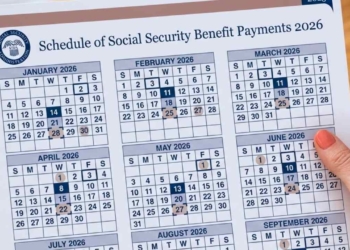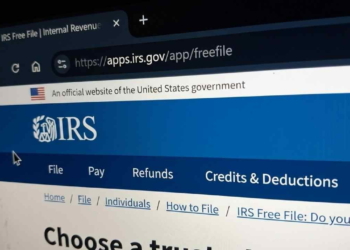The Social Security Administration’s payment schedule has unveiled the next SSI payment in late January. Bear in mind that even if it is delivered in January, it will be for February. Thus, you should save this money for the following month. Only 3 groups of Americans can receive this Federal payment the Agency has scheduled.
Actually, it is meant for seniors and people who are either blind or have a disability. Of course, you must have a low income and little or no resources. Having SSA’s approval is essential to receive money from the Supplemental Security Income program in the United States.
When has Social Security scheduled the next SSI payment?
For your information, the Administration has scheduled the next Supplemental Security Income program for January 31, 2025. As you can see, it will be delivered 24 hours before the normal payday, February 1.
This SSI payment will be issued on Friday rather than Saturday. The Agency never pays on the weekend. Therefore, all the checks need to be sent on working days so banks have enough time to process all the monthly payments.
Since the Supplemental Security Income is for people with financial instabilities, it is of vital importance to send the money as soon as possible in order to avoid delays which would cause food insecurity and lack of cash to get by.
How much money will SSI seniors and people with a disability get on January 31, 2025?
There is not a fixed amount of money for all recipients. However, there are maximum amounts for three groups of beneficiaries:
- essential person
- individuals
- eligible married couples
What is more, you may get a reduction because you are receiving Social Security retirement or disability benefits. Thus, you may not get the full amount. Thanks to the 2025 COLA increase, a single person can get up to $967. An essential person can get up to $484 and eligible married couples up to $1,450.
What are the eligibility criteria for applying for SSI benefits
Age or Disability Status
- Age 65 or older
- Blind: Having a central visual acuity of 20/200 or less in your better eye with the use of a correcting lens, or a limited visual field of 20 degrees or less.
- Disabled: Having a medically determinable physical or mental impairment that:
- Results in the inability to engage in substantial gainful activity (SGA),
- and Has lasted (or is expected to last) for at least 12 continuous months, or to result in death.
Residency and Citizenship/Immigration Requirements
- Must be a U.S. citizen or national, or meet certain categories of lawful residency or qualified non-citizen status.
- Must reside within one of the 50 states, the District of Columbia, or the Northern Mariana Islands. (There are limited exceptions, such as certain children of U.S. armed forces members deployed overseas.)
Income Limitations
- SSI eligibility depends on your income, which includes wages, Social Security benefits, and pensions. The SSA also considers certain in-kind support, like free or reduced housing or food provided by someone else.
- SSI has strict income limits that typically adjust from year to year. Earning below these limits (or having allowable exclusions) is necessary to qualify.
Resource (Asset) Limitations
You must have limited resources. As of the current guidelines:
- Individuals are generally allowed up to $2,000 in countable resources.
- Married couples are generally allowed up to $3,000 in countable resources.
“Resources” typically include things like cash, bank accounts, real estate (other than the home you live in), stocks, and certain personal property. Some assets are not counted, like your primary residence and one vehicle (under certain conditions).







